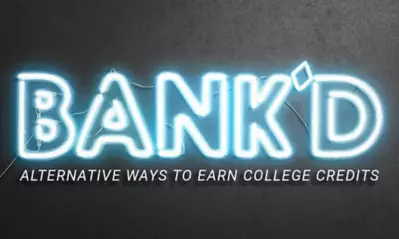How are college scholarships and grants different?

Written by Michael Feder

Reviewed by Chris Conway, Director of Financial Education Initiatives and Repayment Management

Benjamin Franklin once said, “An investment in knowledge pays the best interest.” While that remains true today, it’s also true that your educational investment comes with some upfront costs. If you’ve been thinking of attending college and wondering how you’ll pay for it, it’s time to research financial aid options.
Scholarships and grants are two forms of financial aid to consider first, since you generally don’t have to pay them back. Both these financial aid options can help cover various college costs, such as tuition, housing, books and more.
What are common forms of financial aid?
The most common forms of financial aid to be considered are:
- Grants
- Scholarships
- Student loans
Let’s take a closer look at financial aid options, especially the difference between grants and scholarships, and how they can impact your goals.
What is a scholarship?
Scholarships help students cover their college costs and, like grants, recipients generally do not have to pay them back. This type of financial aid can be awarded once or be renewable each semester or year depending on the awarding organization’s criteria.
They are often contingent on certain criteria. They can be based on need or merit, depending on the institution’s or organization’s criteria. Students can also receive them for athletics, arts and academic performance.
Who offers scholarships?
Foundations, corporations and religious groups also award scholarships for higher education. These can be based on need, merit, participation or other specific criteria.
Thousands of opportunities are out there from organizations ranging from nonprofit foundations to Fortune 500 companies. The U.S. Department of Labor has an online tool for researching scholarships with nearly 9,000 entries. Not surprisingly, these options run the gamut, from those that support women in the steel industry to others designated for nontraditional students.
Colleges and universities also offer scholarships, as well as different programs within these institutions, like specific financial awards for teachers, technology students and more. They also often have them for certain demographics, like military family members or first-generation college students. Like grants, scholarships often cover tuition, fees, books and housing. However, unlike grants, some uses of scholarship money may be taxed.
How does a student apply for a scholarship?
Every opportunity differs by institution, foundation and organization. Some colleges and universities automatically offer one when students with certain grades or test scores apply. Others may require a separate application. They also have some from corporations and organizations may have different due dates, requirements and application materials.
Some are as simple as filling out a form, while others require additional steps such as submitting an essay or financial documentation. Do your research and stay organized so you don’t miss a deadline. Avoid applying for those you are not eligible for so that you focus your energy on creating thoughtful, well-rounded applications.
Why is it important to apply for grants and scholarships?
Scholarships from accredited universities have helped ease that burden, just as grants from federal and state governments have helped make college more accessible to low-income families. It may take some research and legwork up front, but it can truly pay off to look into opportunities you may be eligible for. Every award, whether it’s worth $100 or thousands, makes a difference.
Ways you could save time and money at University of Phoenix
University of Phoenix (UOPX) is committed to removing barriers to higher education. To accomplish this, the University offers a variety of ways to save both time and money on a degree.
- Savings Explorer™ tool: Find out how you could save on your degree program by answering a few questions about your life and work experience.
- Prior Learning Assessment: Put your experience to work for you. Our Prior Learning Assessment awards college credit for qualifying professional and life experiences.
- Fixed tuition: When you enroll at UOPX, your tuition rate is locked in until you graduate from your program.
- Transfer credits: UOPX accepts eligible credits from more than 5,000 accredited schools. Even better, transferring credits to UOPX is free! Find out which credits will transfer with a free evaluation using unofficial transcripts.
- 3+1 Transfer Pathway: Students can earn three years of general course requirements at a community college and then complete a bachelor’s degree in just over a year with this UOPX program.
- Tuition assistance: UOPX works with hundreds of organizations to offer affordable, reduced-cost education to employees. Check with your employer to see if tuition benefits, reimbursement or assistance is available.
- Scholarships: UOPX offers scholarships for every degree level.

ABOUT THE AUTHOR
A graduate of Johns Hopkins University and its Writing Seminars program and winner of the Stephen A. Dixon Literary Prize, Michael Feder brings an eye for detail and a passion for research to every article he writes. His academic and professional background includes experience in marketing, content development, script writing and SEO. Today, he works as a multimedia specialist at University of Phoenix where he covers a variety of topics ranging from healthcare to IT.

ABOUT THE REVIEWER
As Director of Financial Education Initiatives and Repayment Management, Chris Conway works with departments across the University to provide resources that allow students to make more informed financial decisions. She is also an adjunct faculty member for the Everyday Finance and Economics course at the University, and she chairs the National Council of Higher Education Resources College Access and Success Committee. Conway is committed to helping college students make the right financial decisions that prevent future collection activity.
This article has been vetted by University of Phoenix's editorial advisory committee.
Read more about our editorial process.
Read more articles like this:


